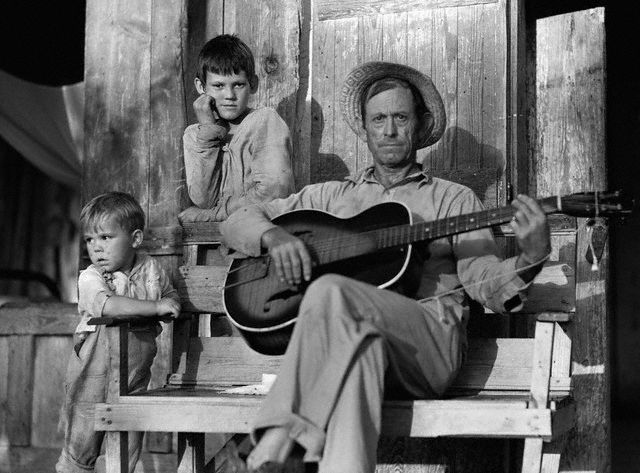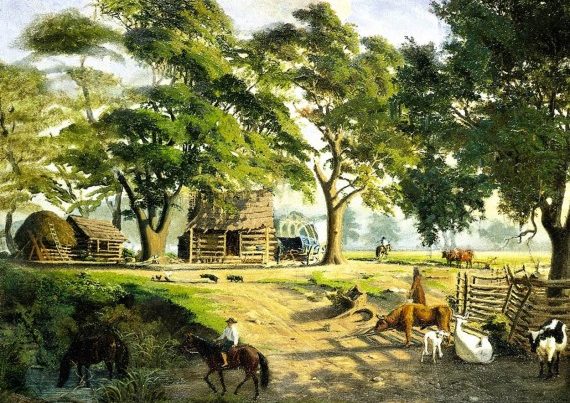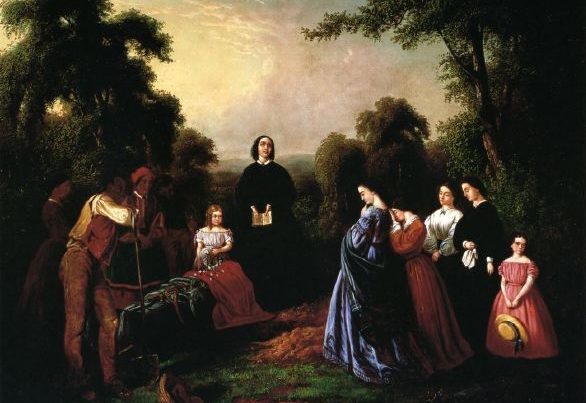Everybody knows that Southerners are “big talkers.” That isn’t to say that we are not also “doers.” Lord knows we get up to some God-awful doings from time to time, but we rarely do any of them without talking about them before, during, and after. There’s usually a reason, sometimes a plan, occasionally an excuse, but always a story. And in those stories there is usually some tasty morsel, some quotable line that would make another fella say, “I too might’ve bit a bull on the behind to see how hard he would kick if I thought that I could’ve said something as poetic as that about it!”
Southern talkers are quotable because they are natural poets. I don’t necessarily mean the artsy-fartsy cape-and-beret kind (though there is usually at least one of those in every Southern town whose obituary usually ends with the words, “He never married,”), I mean that what is native to poetry comes readily to Southerners. If you boil it all the way down to the bone, poetry is the habit of seeing a thing and saying what it looks like in a way that fastens all the meat back onto the skeleton. It is the art of noticing, the science of describing. A poet is a master of metaphor and a scholar of similes.
So the Southerner, whose mother tongue is warm with color and thick with idioms, is weaned on poesis. He comes into the world making noise and he spends the rest of his life making something out of it. This is the ultimate meaning of poetry. To make things out of words. Sometimes a mess. Sometimes a living. Sometimes a world that we would all be thrilled to inhabit.
The best of our talkers know that words are multi-dimensional creatures with various facets. Some are smooth, Some are barbed. Some are sharp, some are dull. Some are flat while others are hollow. Some are empty and some are full, pregnant even.
Real talkers know that words have taste and texture. A man with a gullet stuffed with foul tasting words may spit them out privately, or swallow them whole and hope for the best, but he should never talk with his mouth full of them. The same goes for texture. He guards against those that feel overly slick and oily, or unnecessarily hot to the touch.
But this doesn’t require sprinkling Sweet-n-Low over all discourse. It means that a good talker is cognizant of how much carrot and how much stick to use with every particular mule. When Brother Rheet says on Sunday, “I’ve seen more cotton on the end of a Q-tip than what some of these girls have on,” he is painting a picture. A semi-nude, yes, but not pornography, and certainly not an abstract. And if the point is for the words to be spicy and have enough color so as to make a few people see red, then this what the Old King James would call “a good success.”
But I digress. Which leads me to another facet of Southern talkers–the journey is the destination. It is not unusual that a person who has sat enthralled to some porchfront storyteller comes to the end of a yarn and says, “So what’s the point?” My sweet summer child, the story is the point. There needn’t be a moral or a lesson or even a discernible fork in the road. Emmett just thought you’d enjoy hearing about the time he put stink bait in his tuna salad she made for the Church potluck. And you did! That he took a bit of a detour down by the river to explain the finer applications of stink bait before finally getting you to the church was not extraneous. Experts call this building tension by sub-structural exposition. Emmett calls it “splaining to a girl.” It amounts to the same thing. A Southern story is like a good stick of bologna–you can cut it off from either end and it’ll still be good. Which is why this seems like as good a place as any to end this little survey of Southern talk.







“But this doesn’t require sprinkling Sweet-n-Low over all discourse. It means that a good talker is cognizant of how much carrot and how much stick to use with every particular mule.”
And “… that’s what Uncle Remus said.”
“… A man with a gullet stuffed with foul tasting words may spit them out privately, or swallow them whole and hope for the best, but he should never talk with his mouth full of them. The same goes for texture. He guards against those that feel overly slick and oily, or unnecessarily hot to the touch.”
A portrait of the Yankee lexicon verbally painted in whitewash.